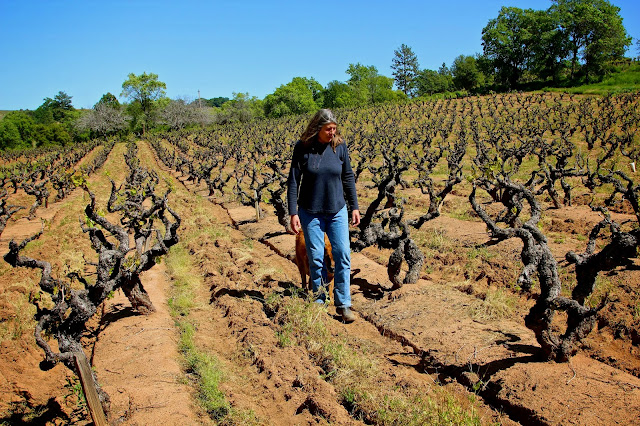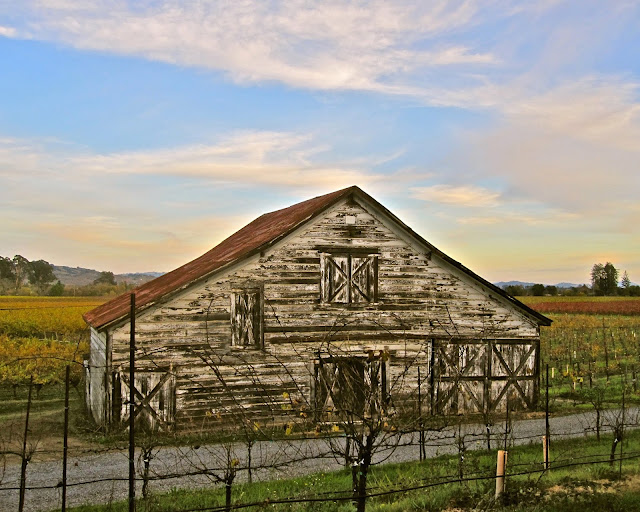Organic wine & food matching: Gemtree Shiraz & Korean style barbecued shortribs
 left, Gemtree's Melissa Buttery and Mike Brown
left, Gemtree's Melissa Buttery and Mike Brown
While organic or biodynamic wines coming out of Australia have been far and between, the movement does exist Down Under; and certification agencies such as Australian Certified Organic (ACO), Demeter in Australia’s Bio-Dynamic Research Institute (BDRI), and National Association for Sustainable Agriculture, Australia (NASAA) have recently stepped up activities, with a number of leading producers (such as Henschke, Burge Family, Elderton, Noon, Wirra Wirra and M. Chapoutier Australia) making the transition to chemical-free, sustainable grape growing as we speak.
 In the meantime, a perfectly delicious, biodynamically grown Australian red – the 2007 Gemtree Tadpole Shiraz (about $16) – has been popping up in markets across the U.S., and it has all the deep, black, bouncy, lush fruitiness Shiraz lovers look for in their reds; including an intense nose, suggesting raspberry liqueur, boysenberry jam and a veneer of vanillin oak, plus a soft medium-full body underlined by easy tannins, allowing the Shiraz fruit to gush forth and pleasure the palate.
In the meantime, a perfectly delicious, biodynamically grown Australian red – the 2007 Gemtree Tadpole Shiraz (about $16) – has been popping up in markets across the U.S., and it has all the deep, black, bouncy, lush fruitiness Shiraz lovers look for in their reds; including an intense nose, suggesting raspberry liqueur, boysenberry jam and a veneer of vanillin oak, plus a soft medium-full body underlined by easy tannins, allowing the Shiraz fruit to gush forth and pleasure the palate.
The intensity of the Gemtree Shiraz is part and parcel of its McLaren Vale terroir; and indeed, for many years the stellar grapes from this 330 acre estate went into cuvées bottled by top brands like Rosemount. The transition from grower to producer started in 1994, when Melissa Buttery, daughter of founders Paul and Jill Buttery, joined the family business as a viticulturist, followed a few years later by Melissa’s boyfriend-turned-husband, Mike Brown, who happened to be an accomplished winemaker.
Always the keen environmentalist, it was Melissa who turned Gemtree towards organic and biodynamic viticulture. Not stopping there, in 1998 she initiated Gemtree Wetlands: taking twenty-five acres in the middle of the property and establishing it as a wetlands preserve in joint venture partnership with the nonprofit group, Greening Australia (South Australia). This arduous, long term project has involved the planting of some 20,000 native trees and shrubs, and the building of six interlinking dams to help regenerate the region and establish a haven for native frogs, birds and animals, while contributing to the self-sustaining aspects of the vineyard.
Korean Style Barbecued Shortribs (Kalbi)
 The biggest plus about a good, sturdy, juicy Shiraz is that its dense fruitiness always lends itself to Asian style barbecued meats like no other wine can. A perfect match every time, for instance, is the Korean style of barbecued beef shortribs known as kalbi. In Hawai’i, where I grew up, no self-respecting hibachi homeboy or local take-out joint can make it without mastering the art of Korean barbecue. The good news is that it’s not that difficult, it can be done anywhere, and the fact that this toothsome cut of beef, in moderately sweetened, garlic and sesame seasoned, soy sauce based marinades, tastes absolutely delicious with a lusciously spiced Shiraz.
The biggest plus about a good, sturdy, juicy Shiraz is that its dense fruitiness always lends itself to Asian style barbecued meats like no other wine can. A perfect match every time, for instance, is the Korean style of barbecued beef shortribs known as kalbi. In Hawai’i, where I grew up, no self-respecting hibachi homeboy or local take-out joint can make it without mastering the art of Korean barbecue. The good news is that it’s not that difficult, it can be done anywhere, and the fact that this toothsome cut of beef, in moderately sweetened, garlic and sesame seasoned, soy sauce based marinades, tastes absolutely delicious with a lusciously spiced Shiraz.
Everyone in the Islands has his/her own variation (or “secrets”) of kalbi, but here is a good, basic recipe to start with:
3 lbs. English cut (thick) beef shortribs, scored
Marinade:
½ cup soy sauce
¼ cup sesame oil
¼ cup sugar
2 cloves garlic, minced
¼ tsp. salt
¼ tsp. black pepper
3 stalks green onions, minced
2 tsp. toasted sesame seeds
Combine marinade ingredients and pour over shortribs in zip-lock plastic bag (or in shallow Pyrex sealed with plastic wrap); marinate overnight in refrigerator. Broil (or grill) 8-10 minutes on each side until desired doneness.







Comments